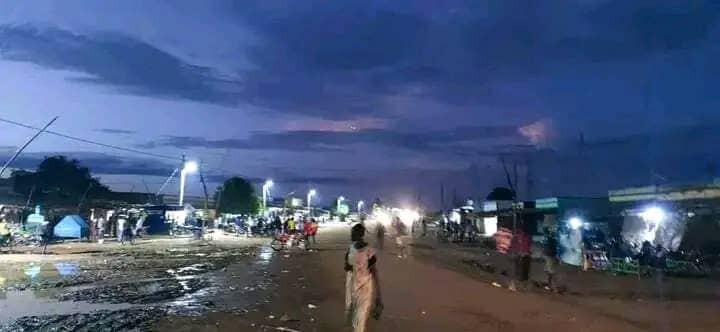Authorities in Aweil East County in Northern Bahr el-Ghazal State have closed down 9 hotels and lodges in connection with sex trade, poor standards and illegal operations.
The crackdown was implemented in the main market and the highly populated Wanyjok residential area, where various merchandises were also on sale.
Speaking to Radio Tamazuj on Thursday, Aweil East County Commissioner Diing Aher Ngong confirmed that nine hotels were suspended in Wanyjok following a security committee meeting on Tuesday for failure to meet the quality standards, and for the promotion of sexual immorality, against the Dinka Malual norms.
“We issued orders against 9 hotels that were constructed with grasses and other local materials in Wanyjok Market. I have directed their owners to construct concrete structures if they want to continue their business, because the grass structures were prone to fire accidents, leading to heavy losses,” said Ngong.
“Another reason for the closure is sex trade involving underage girls, boys and some adults. We have arrested more than 70 children and adults who have been participating in the sexual activities in the hotels and referred them to court,” he added.
Aweil East County community member, who preferred anonymity, slammed the county government for closing down the hotels, saying they must remain open as they served travellers.
The source explained that there was nothing wrong with their standards as they reflected the realities in South Sudan.
“The Aweil East County Commissioner’s ban is wrong because the hotels are similar to others elsewhere. There is no problem if the hotels are constructed using the local materials given the South Sudan’s situation,’’ said the source.
Aweil-based activist Angelina Agau Thiep supported the suspension.
“I totally agree that these hotels are promoting social destruction and prostitution in our state,” she said.
Article 17 of the South Sudan constitution defines a child as anyone under the age of 18.
According to the Child Act of 2008, every child has the right to be protected from sexual abuse, exploitation and harassment, including but not limited to rape, incest, inducement or coercion of a child to witness or engage in sexual activity.




